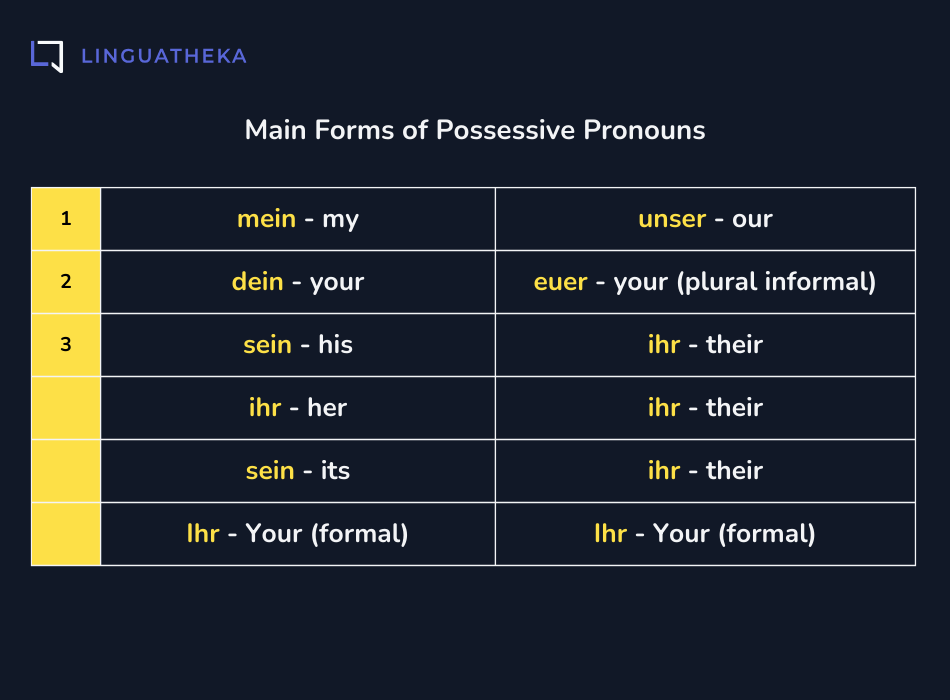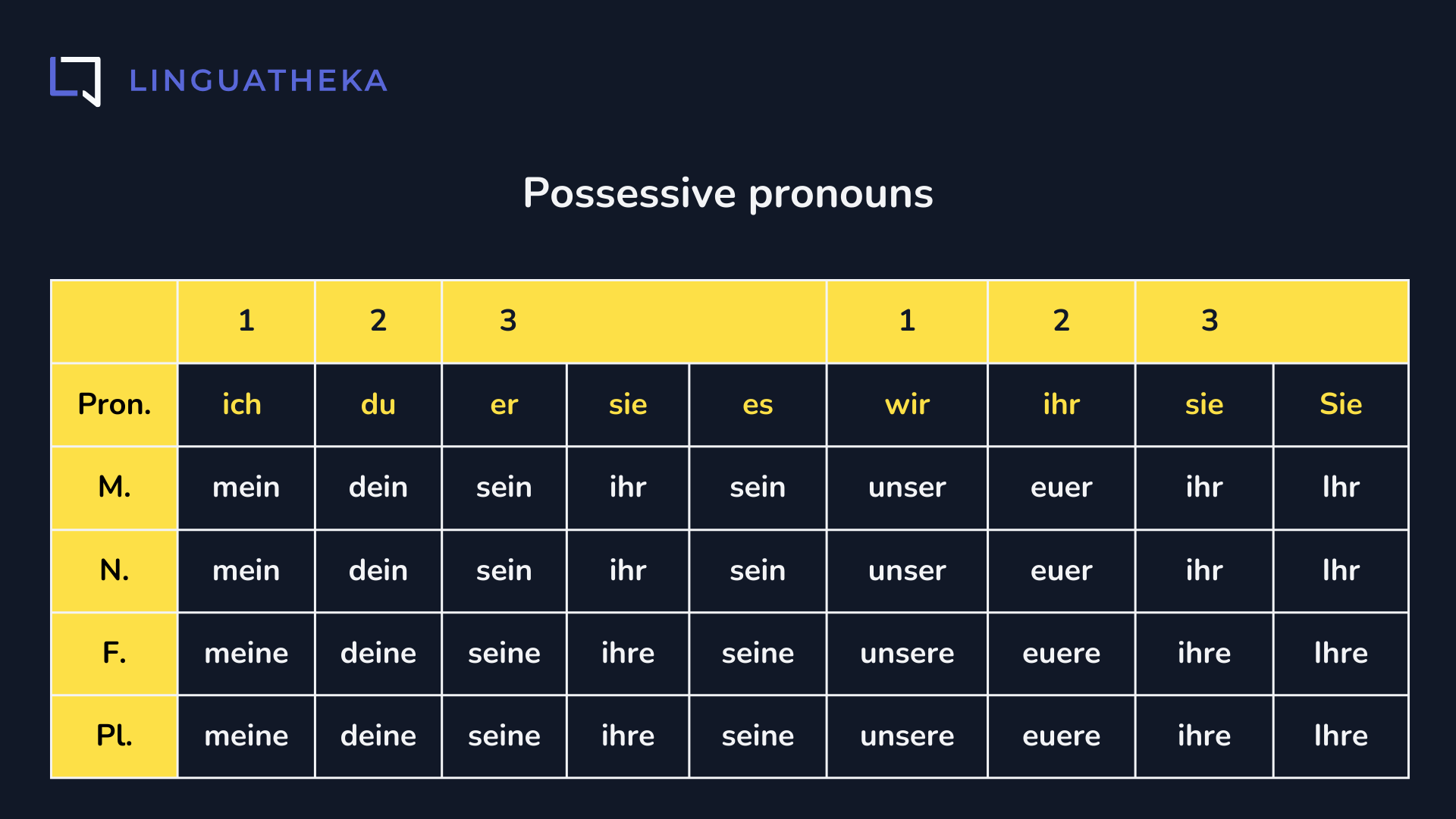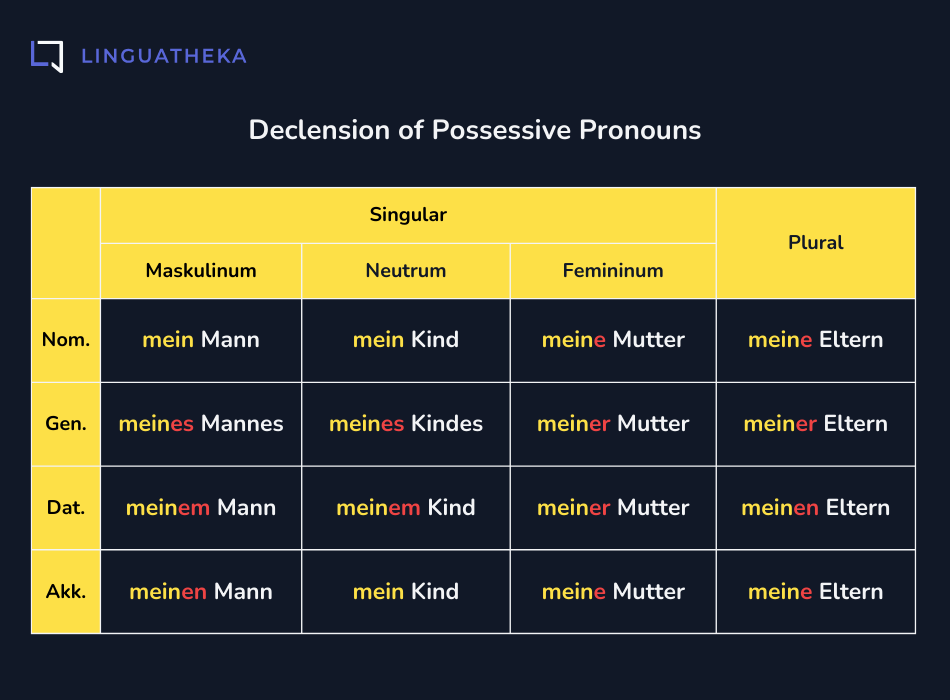Pronouns in the German language play an important role, just like in other languages, serving as substitutes for nouns to avoid repetition and make speech more varied and dynamic.
In German, we distinguish between possessive, demonstrative, personal, interrogative, indefinite, and other types of pronouns.
Each type has its own characteristics in terms of declension and usage.
In this article, we will focus on possessive pronouns.
Possessive pronouns express ownership. In German sentences, they function as determiners. The key forms of possessive pronouns are shown below:

Mein Bruder (my brother) – masculine gender, singular
Meine Schwester (my sister) – feminine gender, singular.
Meine Eltern (my parents) – plural.
Possessive pronouns correspond to the person, number, and gender of the noun. They also change form depending on the case of the noun they refer to. This is important for correct agreement and understanding in the sentence.

Mein Bruder wohnt in Paris. – My brother lives in Paris.
Das ist unser Hund. – This is our dog.
In the singular, possessive pronouns are declined like the indefinite article; in the plural, like the definite article.

Hast du deine Schwester abgeholt? – Did you pick up your sister?
Klaus ging nach Hause mit seiner Frau. – Klaus went home with his wife.
How clear and useful was the article to you?
Start now
days
hours
min
sec
Price €160.00
Language Deutsch, B1.2
Start February 26, 2026
Course Leichter Kurs B1.2
Group #124
Start now
days
hours
min
sec
Price €160.00
Language Deutsch, B1.2
Start February 26, 2026
Course Leichter Kurs B1.2
Group #124



